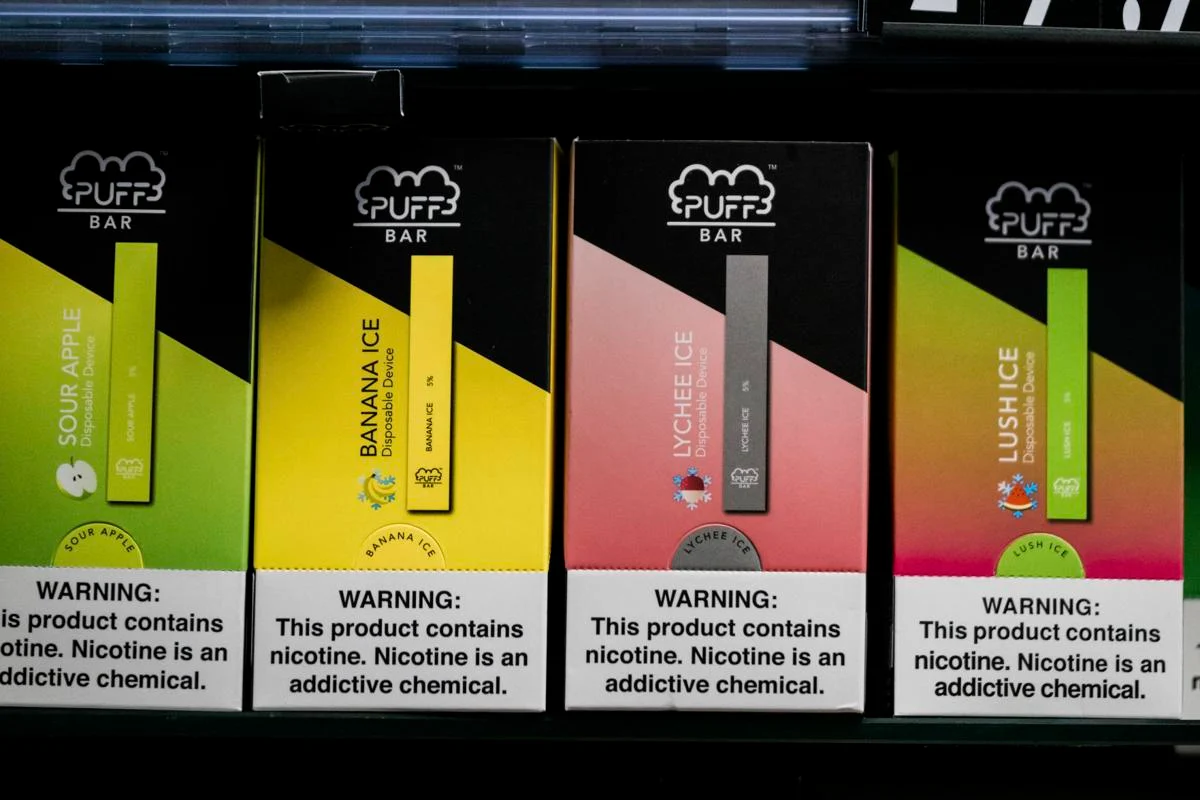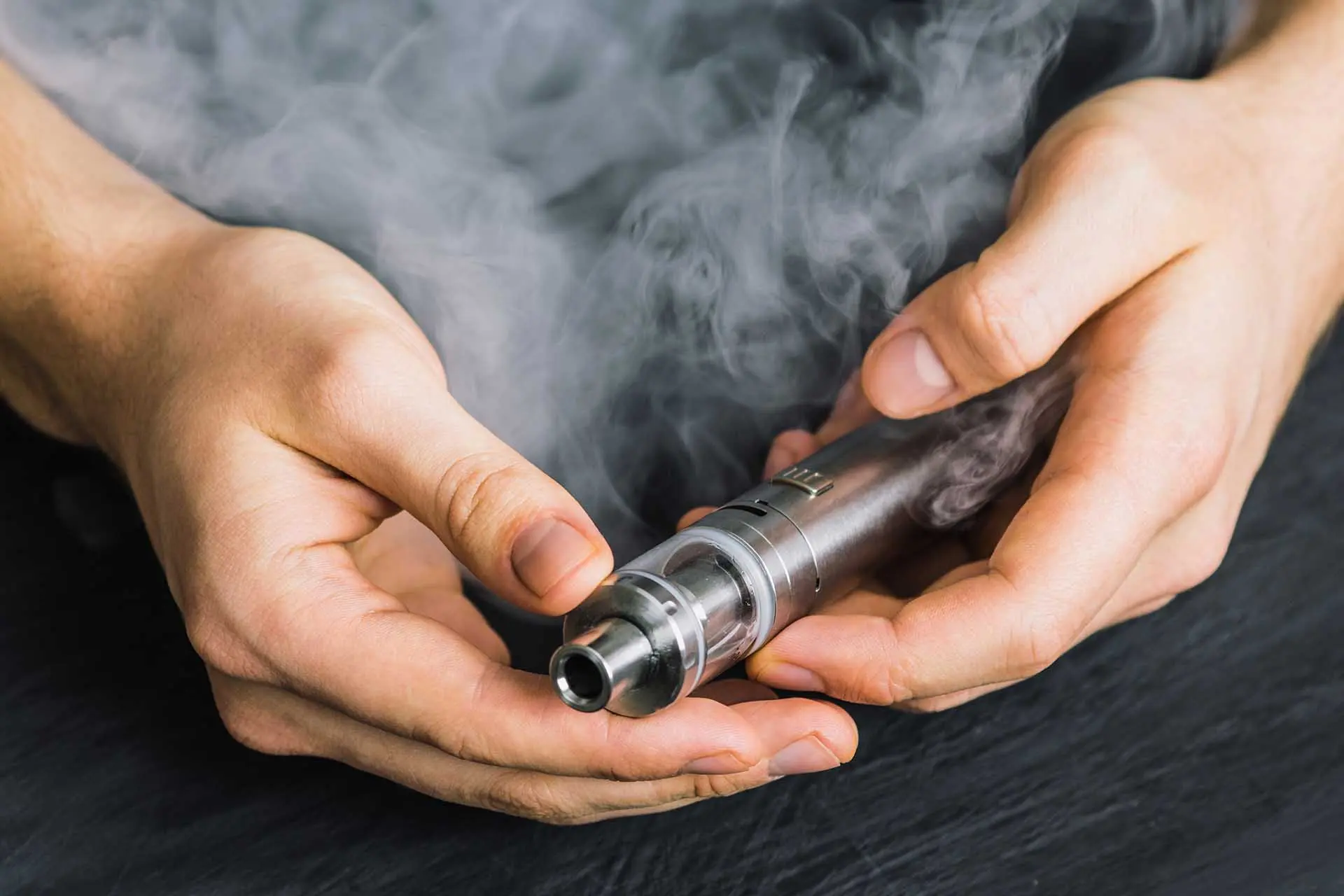Recent revelations from the U.S. Food and Drug Administration (FDA) and independent researchers have sparked significant concern regarding synthetic nicotine substances found in vapes, such as 6-methyl nicotine. These substances, not currently regulated by U.S. tobacco and vaping laws, may be more potent and addictive than traditional nicotine.

The Unregulated Rise of Synthetic Nicotine
Synthetic nicotine alternatives like 6-methyl nicotine are synthesized in laboratories using chemicals, contrasting with traditional nicotine that is derived from tobacco leaves. The lack of regulation in this area allows manufacturers to sell vapes containing these synthetic nicotine analogues without FDA authorization. This loophole potentially exposes consumers to unknown risks and challenges existing regulatory frameworks.
Altria Urges FDA Action on Synthetic Nicotine
Major tobacco firms have witnessed a decline in U.S. sales due to the influx of disposable vapes containing traditional nicotine sold illegally without FDA approval. In a letter to the FDA, Altria Group highlighted the emergence of 6-methyl nicotine in vapes, urging the agency to assess these compounds and clarify regulatory authority over them. “The introduction and growth of chemicals intended to imitate the effects of nicotine, if left unchecked, could present unknown risks to U.S. consumers and undermine FDA’s authority,” the letter expressed.

Health Risks and Research Gaps
While more research is needed, preliminary data suggest that nicotine analogs like 6-methyl nicotine could be more potent than nicotine, affecting youth attention, learning, and memory more severely.
Imad Damaj, a professor at Virginia Commonwealth University, pointed out that 6-methyl nicotine appears more potent in initial studies, but extensive testing is needed to understand its full impact on human health.
The research so far has been limited, with some studies funded by the industry, while others focus on short-term effects on animals or cells, which do not provide a complete picture of its effects on humans.
Market Dynamics and Consumer Safety
Companies like Charlie’s Holdings have introduced products like SPREE BAR, which contains 6-methyl nicotine and promises up to 6,000 puffs per device with flavors like “blue razz ice” and “creamy melon.”
However, the FDA has not approved any flavored vapes using traditional nicotine in the U.S., citing insufficient evidence to show that their health benefits for smokers outweigh the risks to young people attracted by these flavors.
Legal and Ethical Considerations
Ryan Stump, co-founder of Charlie’s Holdings, insists that the company targets only adults and that flavors play a crucial role in helping smokers quit cigarettes. Meanwhile, Novel Compounds, the supplier of 6-methyl nicotine to Charlie’s Holdings, claims their product is not classified as a tobacco product or drug in the U.S. and is committed to legal compliance.

Global Perspective and Future Directions
The use of 6-methyl nicotine is not limited to the U.S.; companies like Aroma King sell it in the UK in pouches marketed as less toxic and addictive than regular nicotine products.
However, the classification and safety of these products remain contentious, with experts like Sven Jordt from Duke University questioning the wisdom of allowing such chemicals in recreational products accessible to the general public.
As synthetic nicotine products like 6-methyl nicotine continue to enter the market, both in the U.S. and internationally, the need for comprehensive research and clear regulatory guidelines has never been more urgent.
The FDA is reviewing data to inform potential actions, aiming to protect public health, especially among youth. The ongoing debate highlights the complexities of introducing synthetic alternatives to traditional nicotine and the broader implications for consumer safety and public health.










